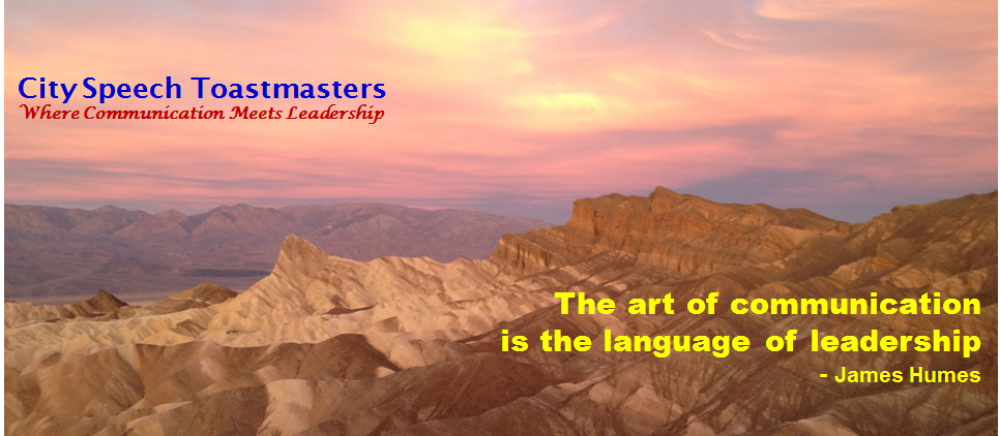By Jeffrey Young, ACB, ALB, Area I-33 Director (2020-2021)
I never wanted to be a leader. Not in a million years, not for a million bucks. The responsibility for /being in charge of things/ is a fear of mine greater than public speaking. Mostly because when things go wrong, you’re the one they blame, and you aren’t just failing yourself, you’re failing the team. I am also bad at delegating, and so I am the last person I thought you’d want as an Area Director.
Why did I do it, then? Because there was nobody else. Because I promised someone I would someday, and I make good on my promises.
Almost a year later, I can say that I greatly enjoyed the experience. It’s both a lot of work and not work at the same time; I wanted to be better than some of the previous ADs we had for my club, and so I threw myself into it pretty hard. The reward was making a bunch of new Toastmaster friends that I wouldn’t have otherwise.
Of all the things that I can say that the benefits are for being an Area Director, there are three:
- You get more out of it the more you put into it.
They say the minimum you need to do is visit each of your Area clubs once every six months to do the Club Visit report. But I’ve been to my Area clubs multiple times, filled in roles when they needed help, and even gave a speech at a couple of them when their speaker canceled. It’s not just about saying hello and disappearing, you need to get involved with the clubs themselves to understand how they work and who they are – because only then can you be effective at helping them. Above the bare minimum visit, you need to try and be there for their Open Houses; your ‘job’ here is to say good things about the club because your position as a dignitary gives the club gravitas to guests.
You make friends. Not just people you bump into at the contests, but people who you get to hear their stories and speeches and you get to know them as people.
I know, I know, ‘But that’s just so much time attending club meetings for multiple clubs…’ Yes, it is. But I’m a convert and a believer. Every single club in my Area welcomed me with open arms and always seemed happy to see me when I showed up. (Either that, or they’re really good at faking.)
You increase your visibility in the world. Some people are happy in their clubs, but as Darren LeCroix said at the Spring Conference, nobody joined Toastmasters to be good at speaking at Toastmasters. The whole point is to work on your leadership skills in a safer environment where you volunteer to help out, be helped, and the cost of messing up is very low
- You learn to ask for things and delegate.
The big to-do of an Area Director is arranging the Area contest. If you’re lucky, you’ll have a Contest Chair and Toastmaster volunteering without being asked. If you’re less lucky, you’ll need to do one or both jobs yourself. But you can’t do the job alone. You need judges, ballot counters, timers, a tech host if we’re still doing virtual contests, and so you need to ask for help. If you’ve been going to the District Executive Committee Meetings (DECM), working with your Division Director, and going to your clubs enough, people are more willing to help you because you’re not just a stranger asking for stuff. I got a lot better at asking people for help over the past year, and a part of it is giving back by volunteering to help – I was a judge and a target speaker for a couple of other contests, and got back people in trade.
The hidden lesson: Since Toastmasters is a volunteer organization, you can’t order anyone to do anything. You have to ask. You have to let things go and hope someone comes through for you when they say they will. Those are lessons in leadership I couldn’t have learned any other way.
- The paperwork needs help, along with the training, but it helps you pay attention to details differently.
There’s no nice way to say it – the Club Report paperwork is a bit tedious. The key thing to remember is the web form is due one month before the end of each half, so November 30 and May 31 – get your club visits done before then, and read the sheet beforehand to know what to look for. Fortunately, you only have to do it for your Area Clubs twice a year, and if you have it open when you visit the clubs, you can fill most of it out right then and there. There are questions about how the club greets guests, handles awards, whether they’re using Pathways, that sort of thing. You are the eyes and ears of the District, so if there’s a problem, you’re in position to help, and the Club Report is the checklist.
Given the choice, knowing what I know now, would I have still said yes? Definitely. You wouldn’t be reading this article if I didn’t, because I didn’t have a reason to visit outside the club until I became an Area Director; I only ever got to see other Toastmasters at competitions and officer training.
Do I recommend it to others? Yes. The year goes by quickly; I’ve helped my Area clubs in small ways and big ways, and though I wasn’t always successful, that fear of failure went away after the Area contest, not because of anything I did personally, but for the work of the people that helped it – and by extension, me – succeed.
Just don’t forget to breathe.
